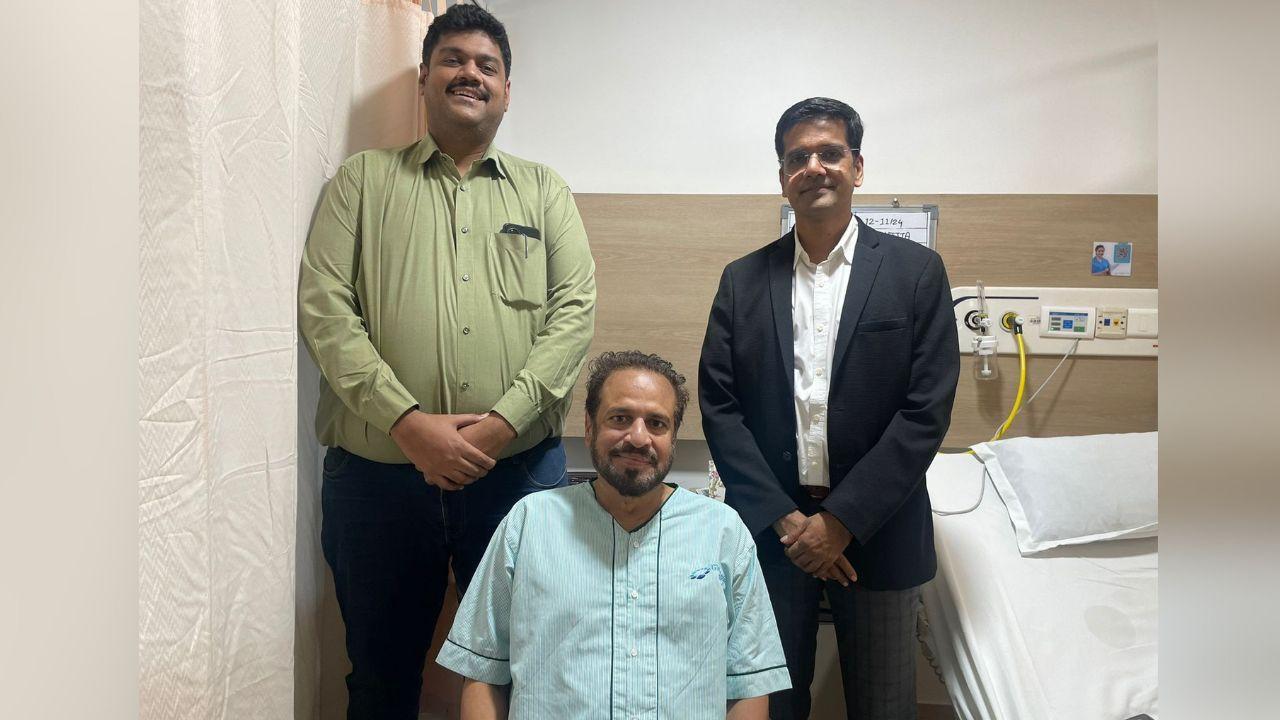
In a remarkable achievement, a team led by Dr Megraj Ingle in Mumbai, has successfully treated a 61-year-old man suffering from a rare and complex swallowing disorder, Achalasia.
The patient, who had been struggling with severe difficulty swallowing for two years, found relief through an innovative treatment approach. This successful treatment not only brought immense relief to the patient but also improved his overall health.
Two years ago, Suhas R. Mungaker, a resident of Mumbai experienced hiccups while eating which he initially dismissed as something everyone goes through. As time passed, he started to feel a sensation of gagging and the impression that food was getting stuck in his throat. To alleviate this, he would drink water and then attempt to eat again after a brief pause. Eventually, these issues seemed to subside for a while. However, he later began to have heartburn following meals, particularly during the summer months. He started taking antacids and other medications to manage the discomfort. His wife consulted with our family doctor about my ongoing issues with antacids, prompting him to recommend consulting Dr Megraj for further evaluation.
Dr Megraj, director and senior consultant of gastroenterology at Gleneagles Hospital in Parel said, “On arrival, the patient was having difficulty eating food and weight loss as well as having chest pain. Done that revealed the presence of the rare condition known as Achalasia (wherein the esophagus is unable to move food and liquids down into the stomach). The endoscopy showed that there were three or four blockages in his esophagus. There was a narrowing of the esophagus close to the stomach. Every time he ate, the food would get lodged in his throat, and even drinking water afterward wouldn’t help as it would also get stuck. He often ended up vomiting the food back up. The endoscopy revealed a structure resembling a bird`s beak. It is an uncommon condition due to the inability of the lower oesophagus sphincter to relax. This condition is quite uncommon, affecting only one in a million individuals. We see almost 10-20 yearly and no surgery was recommended.”
Dr Megraj added, “When was the barium swallow done that showed few hold-ups and the muscle in his oesophagus grew big and was holding his food and the oesophagus has got narrowed near the stomach. It is a procedure in which via endoscope a tunnel is created between layers of oesophagus wall & lower oesophagus muscle is cut. It’s a minimally invasive procedure. Recovery is fast, the day the patient got discharged he was swallowing food properly.”
“It was petrifying for me when two years ago, I would get hiccups during meals, which I dismissed without any action. It became extremely difficult for me to eat as I was diagnosed with a rare swallowing disorder which was unknown to me. However, I am forever indebted to Dr Megraj Ingle and his team for timely intervention. I can eat my favorite food without any difficulty now,” added Mungaker.
“At Gleneagles Hospitals, cutting-edge technology and advanced diagnostic tools empower us to tackle even the rarest swallowing disorders with precision and care. Our state-of-the-art equipment, combined with our expert medical team, ensures that patients receive the most innovative and effective treatments available for these complex conditions,” concluded Dr Bipin Chevale, CEO of the Mumbai hospital.
